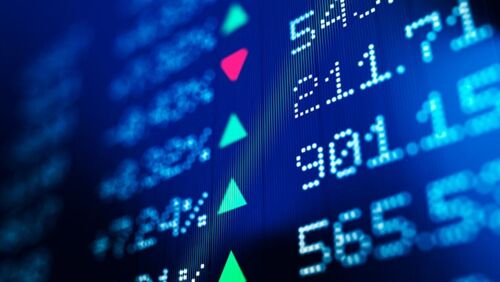Aussies flock to term deposits to take advantage of saver's market
By Nicola Field
10 ways to spot a crypto scam, demand for term deposits jumps 1200%, and a strategy that can boost pay by 44%. Here are five things you may have missed this week.
10 clues you're dealing with crypto crooks
Australians lost more than $701 million to investment scams last year - a 135% jump from 2020. Much of the increase is due to a ballooning in scams involving cryptocurrency.
In a bid to stem the losses, money watchdog ASIC, has put together the top 10 warning signs of a likely crypto scam:
- Offers that come out of the blue
- Fake celebrity endorsements
- A romantic partner you only know online asks for money in crypto
- You're pressured into transferring crypto from your current exchange to another website
- You're asked to pay for a financial service with crypto
- The app you're using for crypto isn't listed on the Google Play Store or Apple Store
- You need to pay more to access your money
- You're promised guaranteed returns
- Strange tokens appear in your digital wallet
- The provider withholds investment earnings 'for tax purposes'
If you think you've been caught up in a crypto scam, ASIC Deputy Chair Sarah Court, says it's important to act fast. "Draw a line under it. Don't send any more money. Block all contact from the scammer," she advises.
"Contact your bank or financial institution immediately to report the scam. Ask them to stop any transactions. Also, warn your family and friends so they can watch out for potential follow-up scams."
1200% growth in term deposits
Australians are flocking to term deposits to take advantage of higher savings rates.
NAB reports a 1200% increase in the number of 12-month term deposits opened in the past three months compared to the same period last year.
The bank has also seen a 29% increase in the number of new savings accounts opened in the past quarter. More than 1000 new NAB iSaver or Reward savings accounts have been opened per day since July 1, 2022.
NAB Executive for Everyday Banking, Paul Riley says it's a "saver's market" right now.
"The fact we are seeing hundreds of new accounts opened every day by new and existing customers reflects how much customers are shopping around," Riley says.
Some of the best rates available on 12-month term deposits include 4.05% with AMP Bank, 4.1% with BankWest and 4.20% with Judo Bank.
But you don't have to lock your money away to earn a decent rate. Macquarie Bank's savings account is paying a welcome rate of 4.25% for four months. ING's Savings Maximiser is paying 4.30%.
How to boost your pay by 44%
Hankering for a pay rise? Completing an MBA (Master of Business Administration) can deliver a serious salary boost.
Monash University's Global Executive MBA (EMBA) has just been ranked number one in Australia, and number 67 globally, by the prestigious Financial Times Top 100 Executive MBA Rankings.
According to the rankings, graduates of Monash's EMBA can enjoy a 44% uptick in salary after completing the program.
MBAs are becoming popular in Australia but they don't come cheap.
On average, it can cost $57,353 to complete an MBA with an Aussie university.
The Monash EMBA comes with a price tag of around $98,400 though you could pay up to $126,000 with the University of Melbourne or as little as $16,000 with the Victorian Institute of Technology.
67% of women own no shares, compared to 53% of men
A survey by Savvy has revealed that 60% of Australians have no direct investments in shares - a figure that jumps to 67% of women, compared to 53% of men.
The serious share enthusiasts are investors aged 55-64, with more than one in ten owning over $100,000 worth of stocks.
Close to one in two sharemarket investors say they're in it for decent returns, while one in three use shares to invest for retirement.
Savvy spokesperson, Adrian Edlington, says, "Many people think they need huge sums of money to invest in shares. The barrier to entry is lower than ever."
The minimum marketable parcel on the Aussie stock exchange is $500 but plenty of trading platforms and micro-investing apps let investors get started with as little as $1.
Where's the money gone?
In a recent speech in Hobart, Reserve Bank Governor, Philip Lowe made a startling admission.
Over $100 billion in notes is floating around the economy - about $4000 per person, despite the use of cash plummeting since the onset of COVID.
On average, Lowe says there are 18 $100 notes and 38 $50 notes on issue for every person in Australia.
Reserve Bank analysis suggests most of these banknotes are being held as a 'store of value' - in other words, we're hoarding the folding stuff under mattresses, in jam jars or at the bottom of sock drawers.
Lowe observed, "As interest rates have risen recently, I thought the attractiveness of holding banknotes as a store of value might decline, but there is little sign of that yet."
He has a point. With rates on at-call deposits topping 4.0% with the likes of St George (4.1%), Rabobank (4.25%) and BankSA (4.10%), it's time for hidden cash to come out of the closet and go to work in a savings account.
Get stories like this in our newsletters.



